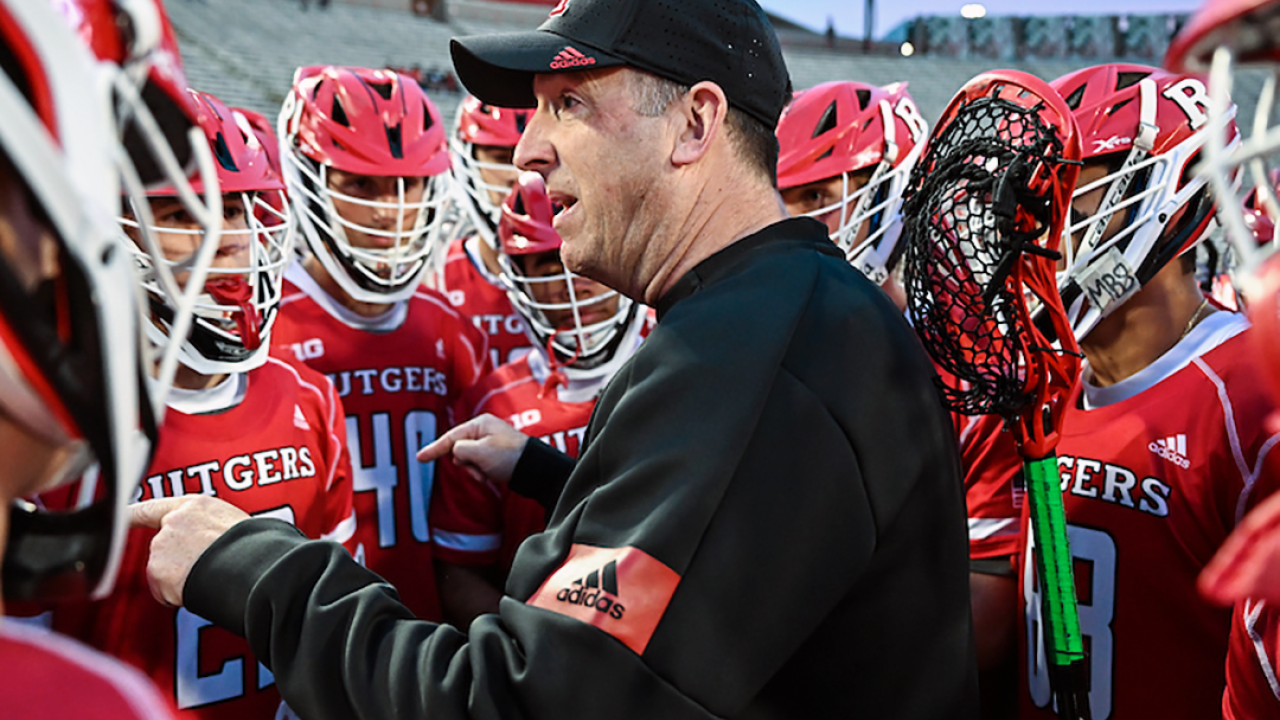There is an argument for the Scarlet Knights — who got four goals from Jack Aimone — to remain among the teams hovering around the edge of the NCAA tournament field. Their RPI of 15 isn’t disqualifying, they’ve played a top-10 schedule and they own three top-20 victories (Michigan, Princeton and Utah).
It isn’t a bad profile, but not an overwhelming one. And the loss to the Terps, who advanced to face Johns Hopkins in Thursday’s Big Ten semifinals at Baltimore’s Homewood Field despite the absence of injured defenseman Ajax Zappitello, means Rutgers has no more chances to improve its position.
It’s also worth it in these sorts of moments for a program to accept both some disappointment and acknowledgment of how far it has come. A decade ago, a Rutgers team finishing above .500 and in the NCAA tournament conversation would have been hailed as a massive success.
That isn’t intended as a patronizing pat on the head, nor should it be construed as one. In an odd way — and one far less enjoyable than last year’s celebration after downing Penn in the quarterfinals — it is another indication of how much expectations have grown around the program in Piscataway.
“I think it’s a product of just the hard work the guys have put in and the commitment they’ve had to put their stamp on Rutgers lacrosse over the last couple years,” Brecht said. “At the end of the day, when you have success, you want more success. When your fans have success, they want more success. It’s like that probably in any sports organization.”
The Big Ten and MAAC began conference tournament play Saturday.
Rutgers must own its closing stretch, of course, losing five of its last six. In a string of losses — at Johns Hopkins, at home against Maryland and then on trips to Penn State and Maryland — the Scarlet Knights had chances to pick up useful victories and couldn’t do so. The problem wasn’t a lack of opportunity.
Nor was it one of effort, as was evident Saturday. Rutgers just couldn’t generate enough production to prevent a scoring drought of 21:03 that spanned halftime and covered the entire third quarter, or to stymie Maryland’s off-ball cutting enough as the Terps racked up 13 assists (six by freshman Braden Erksa).
Whatever the frustration, it was still a painful way for last year’s semifinalists to end this season.
“You don’t want to take this jersey off because of how much you grow from freshman year to now and how much you bond with every single one of them,” said Rall, who set the program record for career caused turnovers with 86. “That’s the reason it hurts more now. The losses sting a bit, but those go away. It’s just not being able to get it done with your guys who you know and love and have your back in everything you do. I don’t regret anything here.”
He and the Scarlet Knights shouldn’t. Rutgers’ graduating class was part of three NCAA tournament victories over the last two seasons; the program had totaled two in the nearly half-century prior.
The 2022 run showed what was possible for the Scarlet Knights. In the end, their 2023 edition underscored that replicating that isn’t easy for any team.
“When you have some time and you’re just driving or you’re letting your mind wander, it really allows you to appreciate last year’s success — the last couple years, the players that we had, the talent, the charisma, the athletic ability and just the camaraderie,” Brecht said. “You mentioned the frustration, and it’s not so much the frustration. It’s just that you really appreciate how good some of those players were and how razor-thin it is when you have a couple of injuries.”



























































